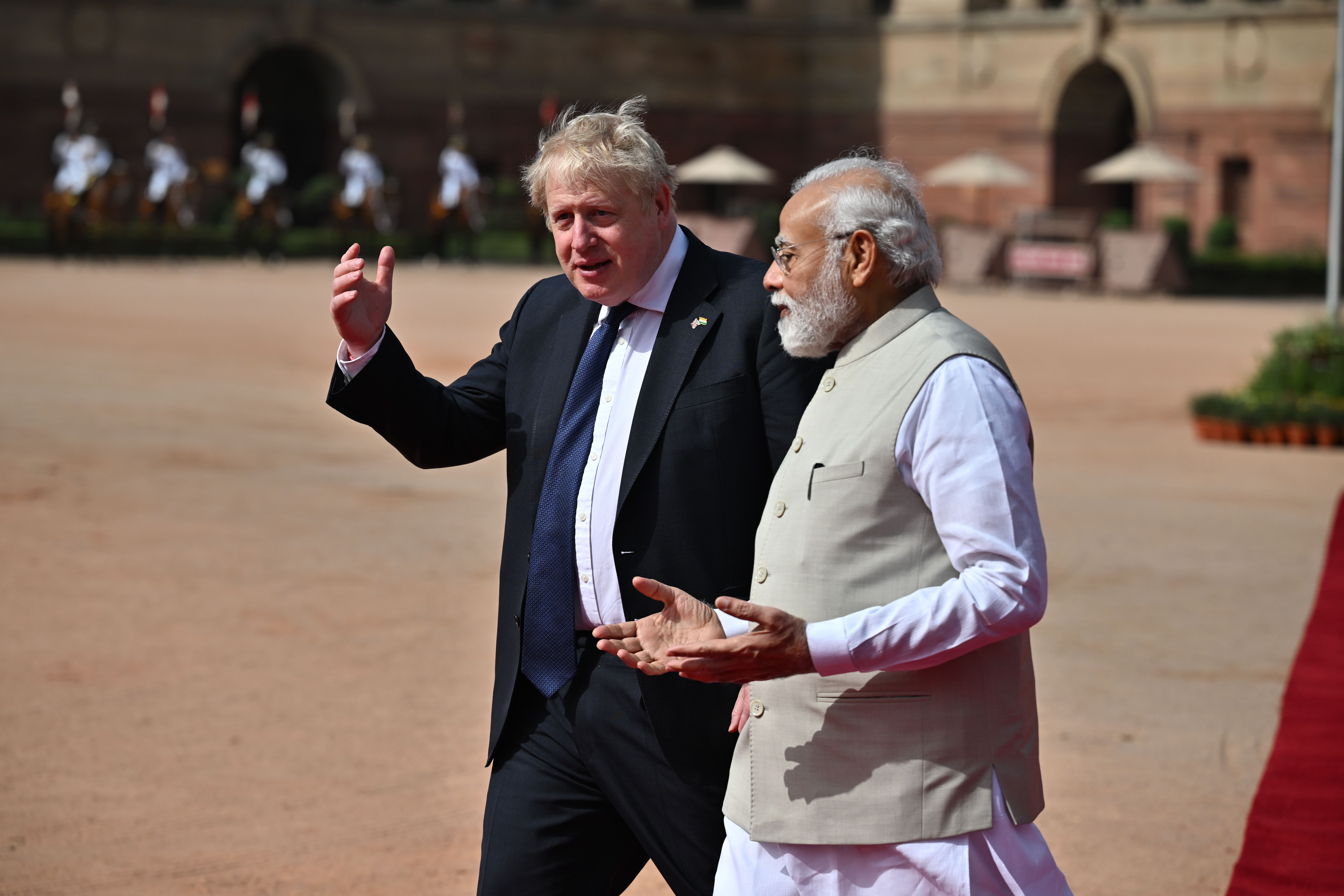Ministers say there is no rush to sign a free trade deal with India
Hopes of an agreement have reportedly been put in jeopardy by comments from Home Secretary Suella Braverman criticising Indian migrants.

Your support helps us to tell the story
From reproductive rights to climate change to Big Tech, The Independent is on the ground when the story is developing. Whether it's investigating the financials of Elon Musk's pro-Trump PAC or producing our latest documentary, 'The A Word', which shines a light on the American women fighting for reproductive rights, we know how important it is to parse out the facts from the messaging.
At such a critical moment in US history, we need reporters on the ground. Your donation allows us to keep sending journalists to speak to both sides of the story.
The Independent is trusted by Americans across the entire political spectrum. And unlike many other quality news outlets, we choose not to lock Americans out of our reporting and analysis with paywalls. We believe quality journalism should be available to everyone, paid for by those who can afford it.
Your support makes all the difference.The Government has insisted there is no rush for Britain to sign a free trade deal with India amid reports that talks with the government of Narendra Modi are close to collapse.
The Department for International Trade (DIT) said negotiations are continuing despite claims that anger in New Delhi over remarks by Home Secretary Suella Braverman criticising Indian migrants had put hopes of an agreement in jeopardy.
When Boris Johnson visited India in April, the two countries set a deadline of Diwali on October 24 to conclude a deal, with reports that Mr Modi could travel to the UK to mark the occasion.
However, while the DIT sought to play down suggestions of a breakdown in negotiations, a spokesman said the Government would only sign when the terms were right.
“We have a close, positive working relationship with India and a thriving trade partnership worth £24 billion in 2021,” the spokesman said.
“We continue to seek improvements to our current trading relationship. This is why we are negotiating a high-ambition free trade agreement.
“We remain clear we won’t sacrifice quality for speed and will only sign when we have a deal that meets both countries’ interests.”
The position was echoed by the Prime Minister’s official spokesman who said that while the Government still wanted to wrap up an agreement by Diwali, no date had been set for a visit by Mr Modi.
“We do want to seek to conclude talks by Diwali,” the spokesman said.
“We haven’t set out any timings for any further inward visits. Obviously, we have an extremely close partnership with India already.”
The comments come after Ms Braverman expressed “reservations” about the prospects of an agreement in an interview last week with The Spectator.
“Look at migration in this country – the largest group of people who overstay are Indian migrants,” she told the magazine.
“We even reached an agreement with the Indian government last year to encourage and facilitate better co-operation in this regard. It has not necessarily worked very well.”
Her comments were reported to have provoked a furious reaction from minister and officials in New Delhi.
However, Foreign Secretary James Cleverly sought to play down suggestions of a rift, insisting relations between the two countries remained good.
“We do have a very strong relationship with India. One of the hallmarks of a strong relationship is you can have a very straight-talking conversation,” he told Sky News.
The situation has been further complicated by reports of sensitivities within Mr Modi’s Bharatiya Janata Party (BJP) over the possible use of the Koh-i-noor diamond in the coronation next year of the Queen Consort.
The jewel – which was seized by the East India Company in 1849 – has been worn by previous consorts, including the Queen Mother at her coronation in 1937.
However, The Daily Telegraph reported that a BJP spokesman had said its appearance at the ceremony at Westminster Abbey on May 6 would bring back “painful memories of the colonial past”.
Mr Cleverly said that while any decision was a matter for Buckingham Palace, it was very good at assessing the international mood in such matter.
“The King instinctively is very good at assessing and calibrating to the public mood both domestically and internationally,” he told LBC radio.
“It is a decision for the Palace. But as I say the decisions made by the Palace are always done with a very clear understanding of the iconography and the image that it sends both domestically and internationally.”